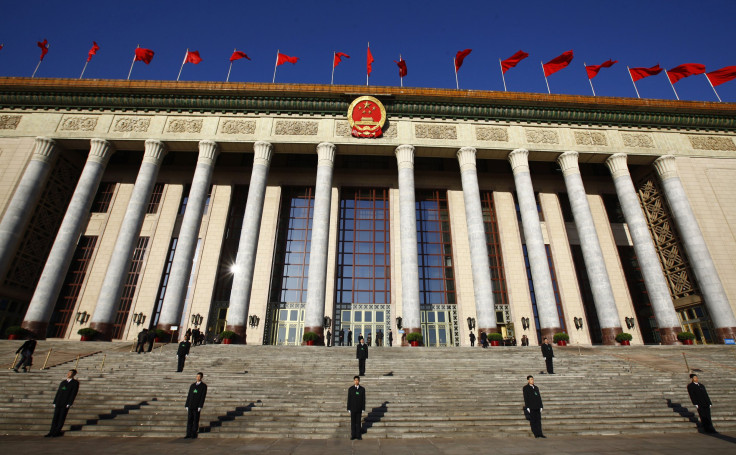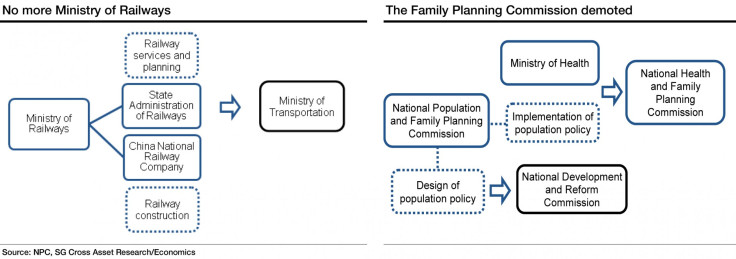Reform Is Coming To China: A Farewell To The Planned Economy?

Hopes raised last last November that China's new leadership would be a virtual Dream Team for reformers now appear to be justified.
At the National People’s Congress (NPC) meeting over the weekend, Chinese leaders unveiled plans to reduce China's cabinet by four departments to boost efficiency and weaken vested interests -- a sign that new leaders are serious about reducing the government's direct intervention into the business sphere, analysts said.
“This long-awaited institutional restructuring plan underlines the new leaders' determination to push forward reform,” HSBC economists Qu Hongbin and Sun Junwei said in a note to clients. “Reform is all about balancing the relationship between the government and the market.”
The newly revealed plan to trim the State Council, as the cabinet is formally known, marks the biggest reduction in ministries since 1998, when then-premier Zhu Rongji engineered a sweeping revamp of the State Council.
The Ministry of Railways and other three departments have been scrapped, while the food safety regulators have been consolidated to more effectively tackle health and environmental problems.

This is the seventh institutional restructuring over the past three decades. The latest one came in 2008 and reduced the 28 ministries into 27 through changes and adjustments to more than 14 ministries and the dismantling of four ministries.
The Ministry of Railways has long been a target of public criticism. With 2.1 million employees and its own police force, courts and personnel to investigate and prosecute offenses, the Ministry of Railways used to be called "a closed empire." In the past two years, more than a dozen of its officials have been removed from their posts because of corruption scandals.
Reformers welcomed the news that the State Council is being trimmed, saying it would further market reforms. "It means the country has removed the last ‘stronghold’ in the way of reforming the industry from a planned economy to market economy," the official Xinhua News Agency quoted Wang Yiming, a government macro-economic researcher, as saying.
Under a plan presented to the national legislature to restructure Cabinet departments, the Ministry of Railways will be split into two parts: the part that provides railway services and makes railway network plans will be merged into the Ministry of Transport; and the part that is in charge of infrastructure construction will be transformed into a corporation, like a state-owned enterprise.
In 2012, the Ministry of Railways’ capital spending was 630 billion yuan ($100 billion) – rivaling the entire 670 billion yuan ($105 billion) military budget. Going forward, however, railway investment may no longer enjoy the same level of priority as in the past, according to Societe Generale's Wei Yao.
The key question then will be: Who will be asked to pay back the ministry’s existing 2.7 trillion yuan ($434 billion) debt, which is equivalent to 5.3 percent of gross domestic product?
Another notable change is the merger of the Family Planning Commission -- the agency that controls the one-child policy – and the Ministry of Health. The population planning and strategy functions of the old ministerial Family Planning Commission will be taken over by the National Development and Reform Commission.
Economists think this move could pave the way for the much-anticipated and long-overdue relaxation of the one-child policy.
The main obstacle to China’s economic reforms is political vested interests, and they can only go through with the help of political reforms.
“The plan to streamline the government is a good step in the right direction, indicating that the new leaders are well aware what has to be done,” Yao said. “Certainly, more is needed, but the fact that such a move is made at the very beginning of the new leaders’ term is already something.”
© Copyright IBTimes 2024. All rights reserved.






















